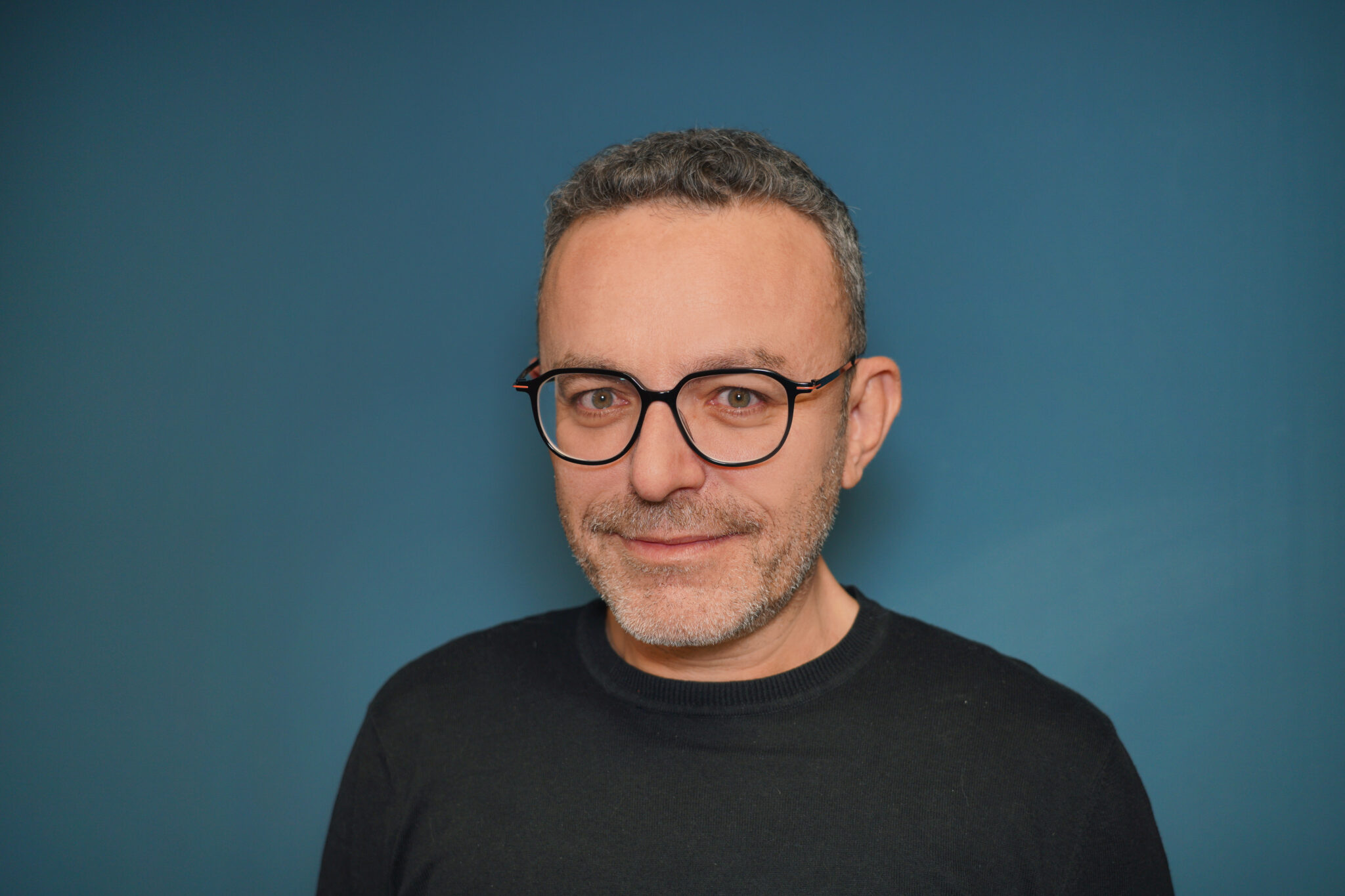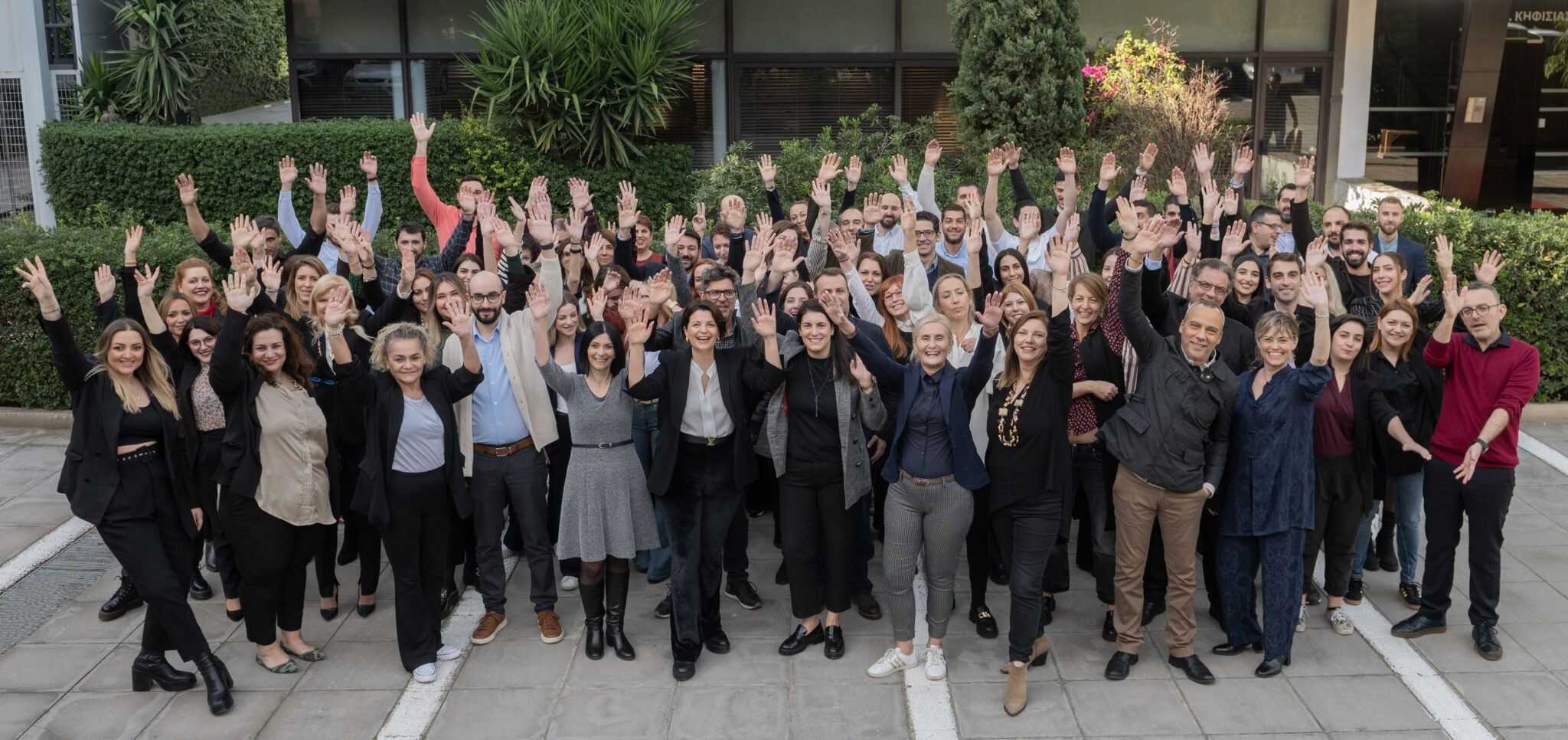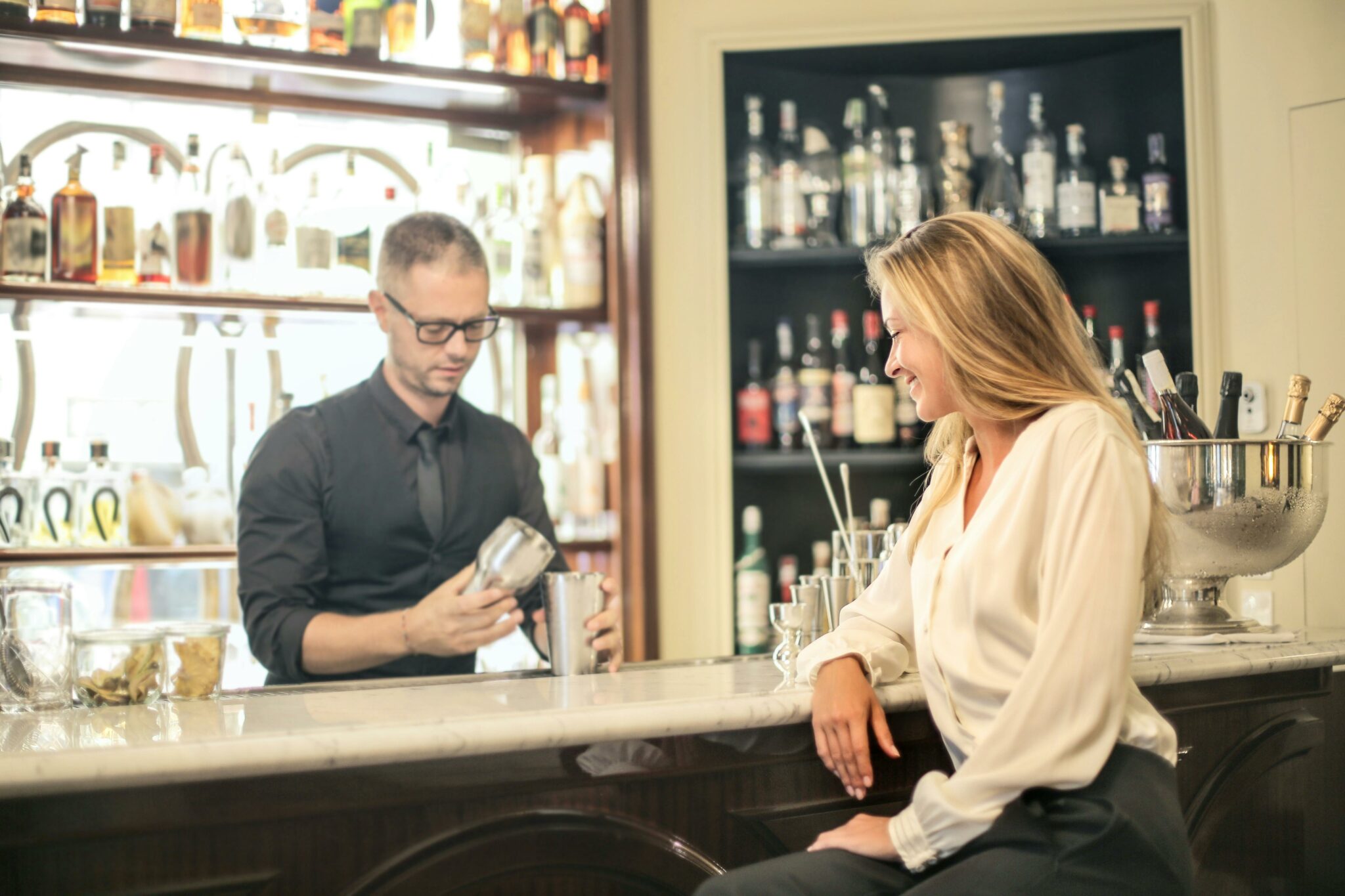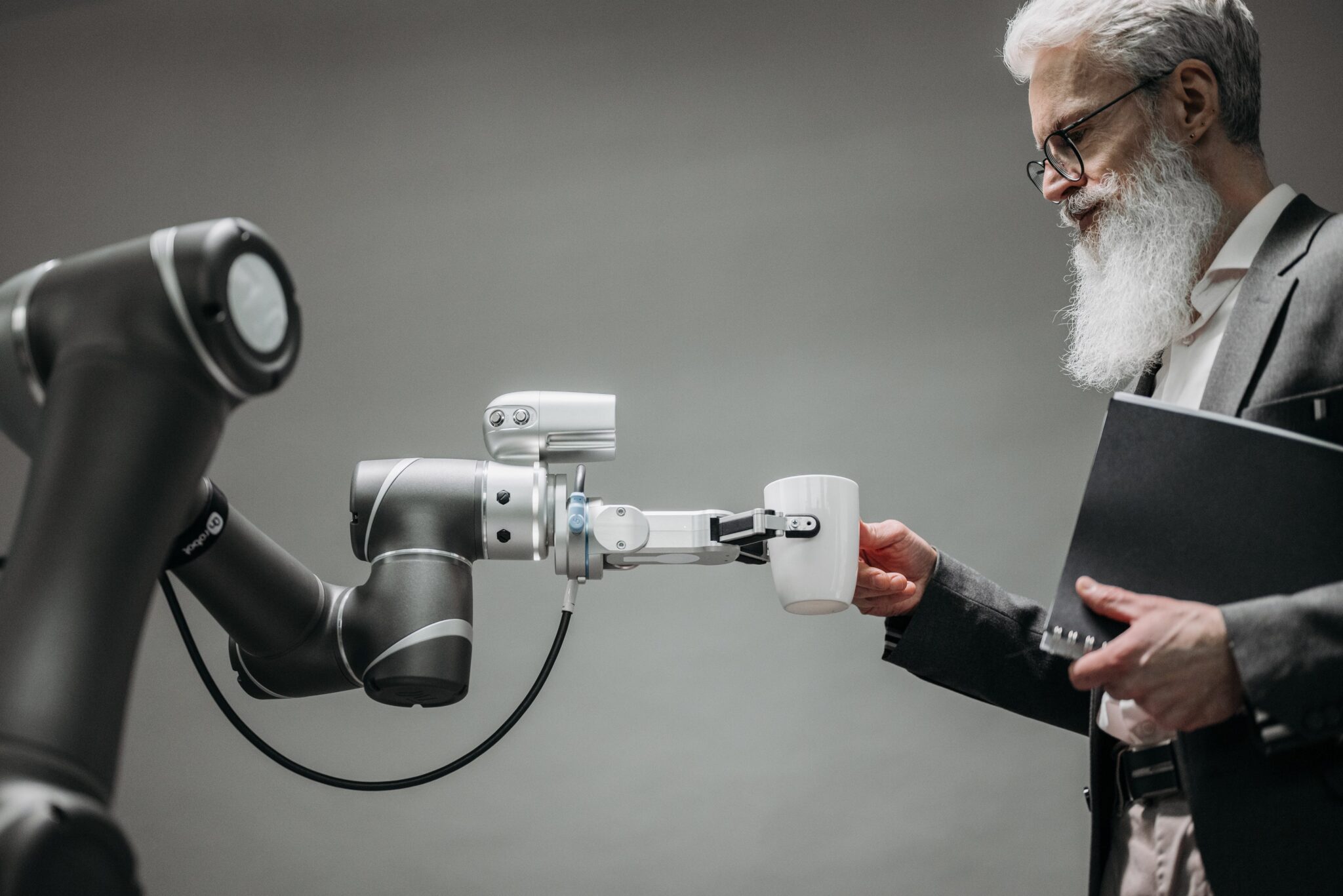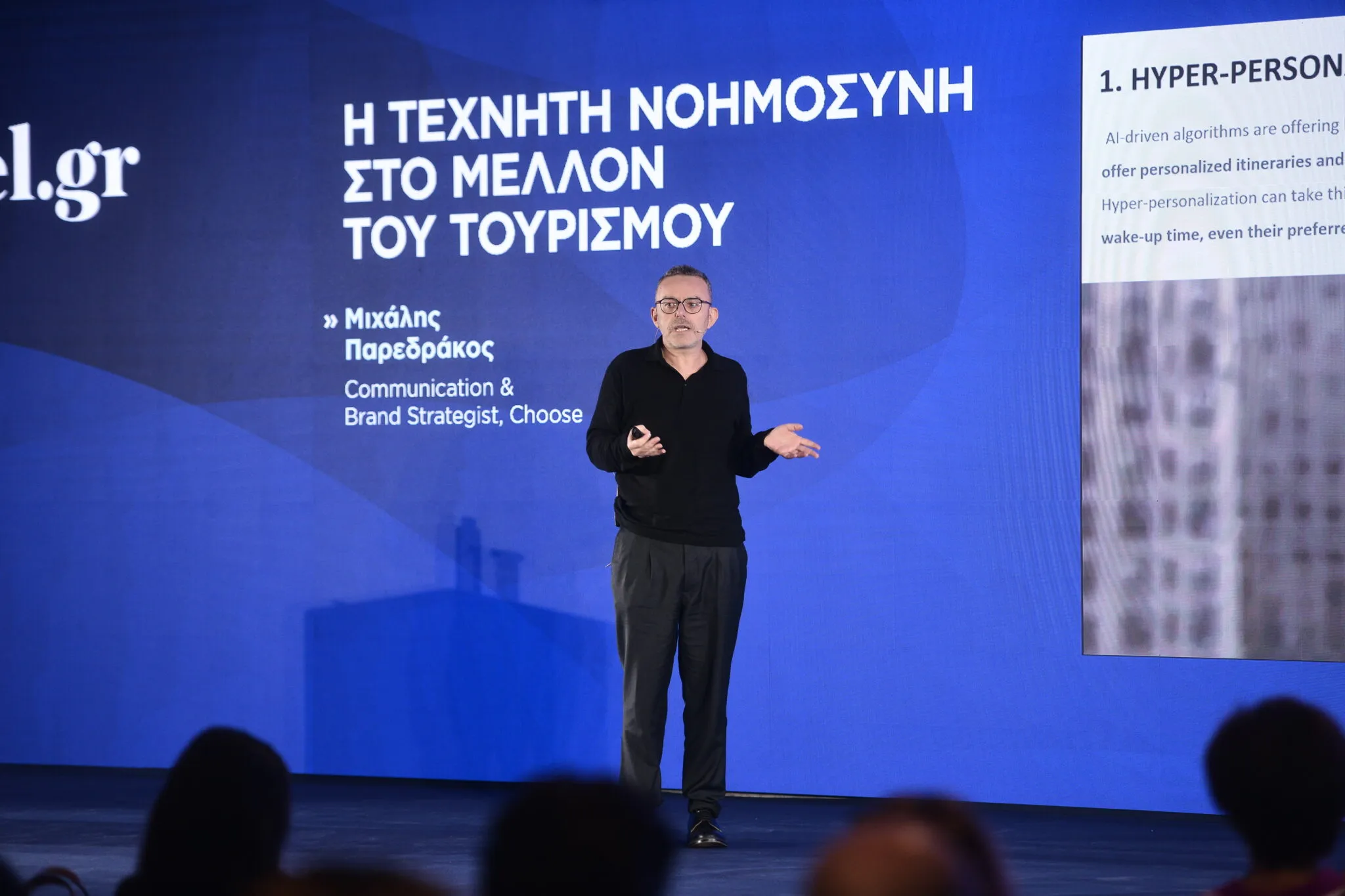Michael Paredrakos is a 360º Brand & Communication Strategy Consultant. He works at Choose Strategic Communications Partner, a dynamic and innovative company celebrating two decades in business this year, and is the ideal person to talk with if you’d like to learn about future trends. He is also the founder of thecuriousbrain.com, which originated as a platform to curate the captivating discoveries he stumbled upon on the internet, and which has evolved into an industry benchmark, amassing millions of views, today standing among the world’s foremost sources for topics including advertising, strategy, inspiration, and trends.
After listening to his talk about AI and its impact on travel at the Greece Talks conference organised by Travel.gr earlier in November of this year, I reached out to him asking whether he could share more of his invaluable knowledge in this area with us and offer us a glimpse into how Greece – and the world – will change with the increasing utilisation of AI.
Please tell us about Choose.
As one of the largest companies in the communication industry in Greece, Choose adopts a 360o approach, combining excellent market knowledge, quantitative and qualitative data analysis, and digital technology capabilities. Our three main pillars of activity are Advisory, Digital Transformation, and Communication Strategy.
We offer comprehensive and meaningful solutions to our clients across 13 diverse sectors of the economy, including Government & Public Sector, Tourism & Travel, Health & Medicine, Banking & Financial Services, Energy & Environment and more.
Our work has a broad impact, ranging from international organizations and NGOs to creative industries and the digital economy. We have extensive experience in tourism promotion, having conducted numerous communication campaigns for Regions and Municipalities that promote the country’s dominant competitive advantage abroad.
What is the Greece’s present level of technological know-how and use?
As someone who is deeply engaged in Greece’s technological landscape, I see the current technological know-how and AI utilisation as dynamic and rapidly evolving. Greece actively embraces AI’s potential, evident in the national AI strategy led by the Hellenic Ministry of Digital Governance. The recognition of AI as a strategic axis reflects a conscious effort to integrate cutting-edge technologies.
The private sector in Greece, including Choose, is making significant strides in AI utilisation, with investments in creative AI tools and training. While AI is relatively new compared to established tech ecosystems, Greece is at an exciting juncture, actively leveraging AI as a strategic tool for development. Collaborative efforts between the public and private sectors are positioning Greece to make substantial strides in effective AI use today and in the future.
Will Greece progress quickly in terms of AI use? If so, at what speed?
Given the recent establishment of the High-Level Advisory Committee for Artificial Intelligence in Greece, it’s evident that the country is strategically embracing AI.
The Committee’s comprehensive approach, with a mandate to formulate policy recommendations and a long-term national strategy, positions Greece for a relatively swift integration of AI technologies. Considering the importance of preparing for AI’s impact on resilience, competitiveness, and sustainable development, Greece appears poised for advancements, particularly in the tourism industry.
However, the exact timeline depends on factors like the implementation of Committee recommendations, the country’s adaptability to technological changes, education transformation, private sector investment, and the global speed of AI development.
At Choose we have already created amazing working projects that utilise AI such as the successful launch of a virtual tourist guide, the Olympian Land AI, for the Region of western Greece, based on Artificial Intelligence. But also, the innovative programme Re View that we are developing in collaboration with the National Technical University of Athens, which utilises AI to analyse visitors’ impressions and evaluations in open platforms of tourist interest and produces automated proposals for the promotion and upgrading of the country’s tourist destinations.
What are the most important AI advances in the travel industry?
At Greece Talks, we explored key AI trends transforming travel and tourism, which include hyper-Personalisation, AI-driven algorithms that redefine travel recommendations, tailoring itineraries based on intricate details like room temperature and personal preferences. Then, there is AI-Enabled Automation, already operated by Airlines, including Delta, that leverage facial recognition for seamless self-check-ins, efficient baggage handling, and improved customer service, significantly enhancing travel convenience.
Another trend is Intelligent AI Chatbots that revolutionise travel planning by assisting in bookings, providing instant customer service, and saving operational costs.
We are also witnessing the AI Robots/Voice Assistants Revolution. The post-pandemic era sees increased adoption of AI robots and voice assistants in travel for contactless solutions in guest rooms, ships, and airport security. At the same time, a huge trend is Real-time Analysis of Traveller Sentiments through facial expressions, voice tone, and social media posts, enhancing customer experiences and turning negative situations into personalised service opportunities.
Your talk was fascinating as well as frightening. With AI trends such as robot-run hotels, what will become of a) employment for people in the hospitality/service industry and b) the invaluable human interaction between host and guest?
Absolutely, the advancements in AI are both fascinating and a bit daunting, especially when we consider trends like robot-run hotels. It’s like we’re standing at the doorstep of significant changes in the hospitality industry.
As we witness the rapid evolution of AI, it’s crucial for everyone in the hospitality sector to pay attention. The very nature of jobs in this industry is evolving, and the way hosts interact with guests is undergoing a profound shift.
Let’s break it down:
On Employment in the Hospitality/Service Industry:
Impact of Automation
AI and robots in hotels might mean more automation for routine tasks like check-ins and room service. This could potentially affect certain low-skilled jobs.
New Opportunities
On the flip side, developing and maintaining AI systems, along with creating new roles to enhance guest experiences, could open up opportunities in technology, programming, and customer service.
On Human Interaction Between Host and Guest:
Preserving the Personal Touch
There’s a concern about losing that personal touch hosts bring to guest interactions as automation increases. Hospitality is all about offering a warm and personalised experience, and replicating that with AI can be a challenge.
Balancing Roles
There’s a possibility for AI and human roles to complement each other. AI can handle repetitive tasks, allowing human hosts to focus on the more complex and emotionally nuanced aspects of guest interactions.
Considering Guest Preferences
Whether guests appreciate the efficiency of AI services or prefer the warmth of human hosts is a critical factor in how AI is embraced in the industry.
In navigating these changes, it’s not just about technology. It’s about finding an ethical balance that harnesses the advantages of AI while preserving the unique qualities that human hosts bring to the hospitality experience. This might involve upskilling the workforce for more intricate tasks, ensuring that technology enhances rather than replaces human capabilities. Clear communication, transparency, and international guidelines on the role of AI in hospitality are crucial to managing guest expectations and building trust in these evolving service models.
One of Choose’s key activities is to create brand strategies for companies. Please tell us more about how you develop the perfect strategic “formula” for each client.
At Choose, creating the ideal strategic formula is a meticulous process that blends extensive experience, innovative thinking, and a profound understanding of each client’s unique needs. This involves an in-depth Client Analysis and Comprehensive Market Research leading to tailored solutions, which recognize and address each client’s unique challenges.
Throughout this process, we employ Innovative Ideation, meaning that we put an emphasis on innovation in strategic development, and on brainstorming creative concepts that set clients apart via cutting-edge approaches. At the same time, it is crucial that the client is actively involved through regular communication and feedback loops, ensuring the final strategy aligns with their vision.
If Greece was one of your clients, what would you do to offer the right branding, and how would implement this strategy?
We would approach and implement Greece’s branding strategy through thorough research and understanding of its manifold and different potentials, the use of innovative branding concepts and the implementation of a multi-channel campaign.
Leveraging our substantial experience in advertising diverse Greek regions, we know that it is imperative to analyse the unique cultural, historical, and natural attributes of the country and then use this research as the foundation for crafting a brand strategy that authentically represents the essence of Greece.
The branding concepts need to go beyond the conventional and utilise cutting-edge technology, storytelling techniques, and interactive experiences to create memorable and shareable moments, something we at Choose have a proven track record of.
The last part is the strategical crafting and executing of multichannel campaigns, combining traditional and digital channels, that ensure maximum reach and engagement to create a cohesive and impactful presence for Greece across diverse platforms.




